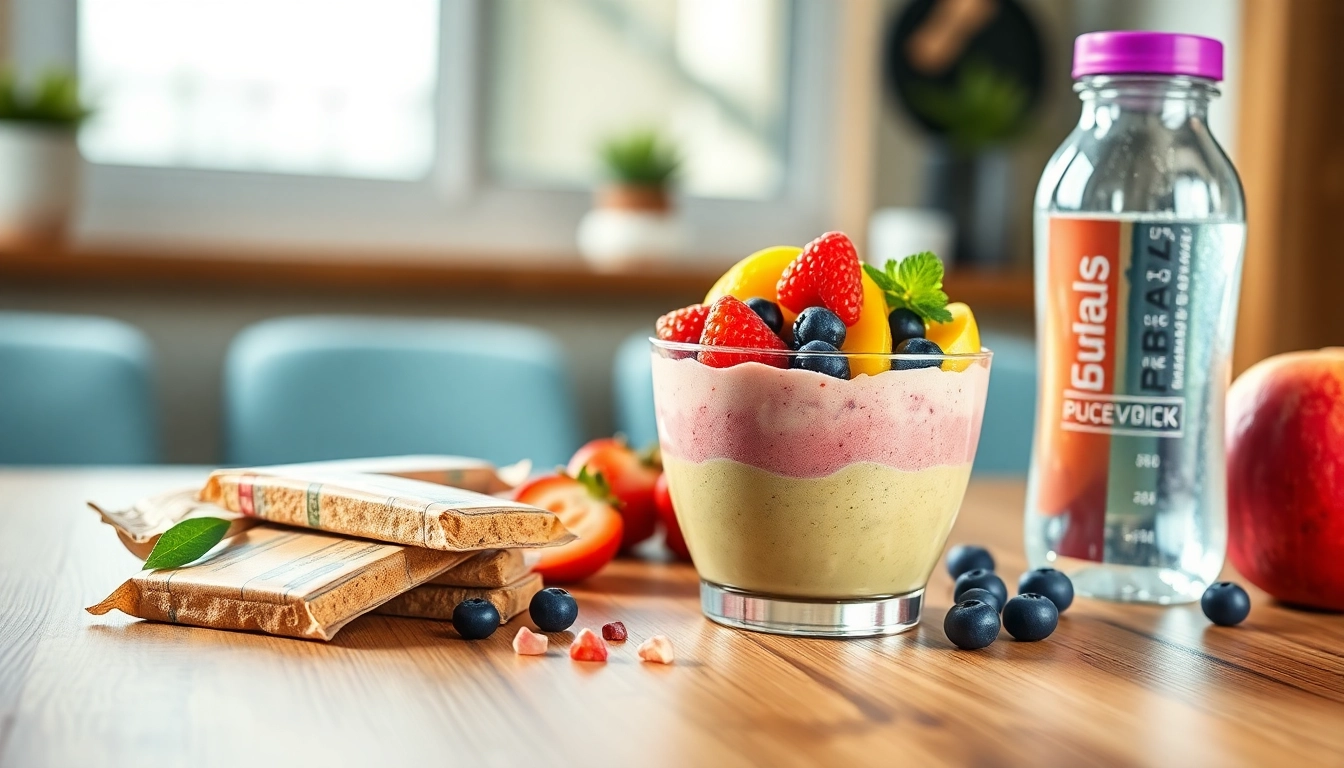Understanding Postworkout Nutrition
After an invigorating workout, it’s crucial to consider your nutrition. The concept of postworkout nutrition transcends merely satisfying hunger; it’s about providing your body with the right nutrients to recover and enhance performance. Knowing postworkout nutrition essentials can dramatically impact your fitness journey.
What Is Postworkout Nutrition?
Postworkout nutrition refers to the food and fluids you consume after exercising, aiming to replenish energy stores, repair muscle damage, and alleviate soreness. This phase is often recommended to start within 30 minutes to a couple of hours after completing a workout. A significant component of postworkout nutrition involves a balanced intake of macronutrients—proteins, carbohydrates, and fats—along with hydration essentials.
Why Nutrition Matters After Exercise
During exercise, especially high-intensity or endurance workouts, the body undergoes various stressors, leading to depletion of glycogen stores and muscle tissue damage. Conversely, proper postworkout nutrition plays a pivotal role in:
- Muscle Recovery: Consuming protein post-exercise aids in muscle rebuilding and recovery, providing the necessary amino acids for muscle repair.
- Glycogen Replenishment: Postworkout carbohydrates replenish glycogen stores depleted during exercise, which is vital for overall performance.
- Reduced Muscle Soreness: Proper nutrition can mitigate delayed onset muscle soreness (DOMS), enhancing recovery times.
Common Misconceptions About Postworkout Meals
The postworkout meal is often shrouded in myths. For instance, many believe they need to consume large quantities of protein immediately after exercising. However, studies suggest that while protein consumption is necessary, the quantity and timing can be more flexible than previously thought. Another common misconception is that only certain foods are suitable post-exercise, ignoring the fact that everyone’s body is different, requiring individualized nutritional strategies.
Components of an Ideal Postworkout Meal
Essential Nutrients: Protein and Carbohydrates
Protein is a cornerstone of postworkout nutrition, with recommendations typically suggesting 20-30 grams to support muscle repair. Good sources include chicken, fish, eggs, and dairy. Carbohydrates, on the other hand, assist in the resynthesis of glycogen. Simple carbs, such as fruits or honey, can be especially effective right after a workout as they are quickly absorbed. An ideal balance of these nutrients helps to optimize recovery.
The Role of Hydration in Recovery
Hydration should never be overlooked after a workout. Fluid loss during exercise can be substantial, particularly in high-intensity sessions or warm-weather workouts. Rehydrating with water or electrolyte-rich beverages is essential to support nutrient transportation, maintaining optimal performance and recovery.
Healthy Fats and Their Importance
While protein and carbohydrates often get more attention, healthy fats also play a vital role in postworkout nutrition by supporting hormone production and nutrient absorption. Incorporating moderate amounts of healthy fats, such as avocados, nuts, or olive oil, can enhance the nutritional profile of your meals without hindering recovery.
Strategies for Quick Postworkout Refueling
Timing Your Postworkout Meal
The window for effective postworkout nutrition is often cited as 30 minutes to two hours after exercising. However, the precise timing can depend on the individual’s fitness level, the workout’s intensity, and the type of activity undertaken. Listening to your body is essential; if you’re not immediately hungry, prioritizing hydration and waiting until you are can be equally effective.
Best Foods to Include in Your Recovery
Some ideal options for postworkout meals include:
- Grilled chicken with brown rice and veggies
- Greek yogurt with fruit and a handful of nuts
- Protein shakes with fruit and nut butter
- Whole-grain toast with avocado and poached eggs
Each of these provides a balanced approach to replenish energy and support muscle recovery.
What to Avoid After Working Out
Just as important as what to eat is what to avoid. Steer clear of heavy, greasy foods that can slow down digestion and recovery. Additionally, excessive sugar or processed snack foods can spike insulin levels and lead to energy crashes later. Instead, favor nutrient-dense foods that fuel your recovery without the drawbacks of excessive empty calories.
Sample Postworkout Meal Plans
Quick and Easy Snacks
If you’re on the go, consider these quick snacks:
- Protein bar (choose one with minimal sugar)
- Apple slices with almond butter
- Cottage cheese with pineapple
- A banana and a handful of nuts
Balanced Meals for After Training
For more substantial postworkout meals, consider these combinations:
- Salmon, quinoa, and steamed broccoli
- Chickpea salad with mixed greens, olives, and feta
- Stir-fried tofu with brown rice and vegetables
Customizing Your Postworkout Nutrition
Your postworkout meal should be tailored to your unique body composition, fitness goals, and dietary preferences. Consider tracking what works best for you through a food diary or using apps that track your nutrition. This proactive approach allows for adjustments to optimize recovery and performance.
Common Mistakes in Postworkout Nutrition
Overlooking Hydration
Failing to rehydrate properly is a frequent error. Drink enough water both during and after your workout. Consider beverages that restore electrolytes lost through sweat for prolonged or intense sessions.
Ignoring Individual Dietary Needs
One size does not fit all in postworkout nutrition. Factors such as age, weight, workout intensity, and personal dietary preferences should influence your meal composition. Consult a nutritionist if unsure about your nutritional needs or if you follow a specific dietary regimen.
Relying Too Heavily on Supplements
While protein shakes and supplements can be convenient, they shouldn’t replace whole foods. Natural sources of protein and nutrients provide additional benefits, such as vitamins and minerals, essential for recovery.
Conclusion
Mastering postworkout nutrition is a critical component for anyone serious about enhancing their performance and recovery. By understanding the components of an ideal postworkout meal, avoiding common pitfalls, and tailoring nutrition to individual needs, you can maximize the benefits of your workout regime. Fueling your body correctly post-exercise will not only make your recovery smoother but will also empower you to achieve your fitness goals with greater efficiency.
